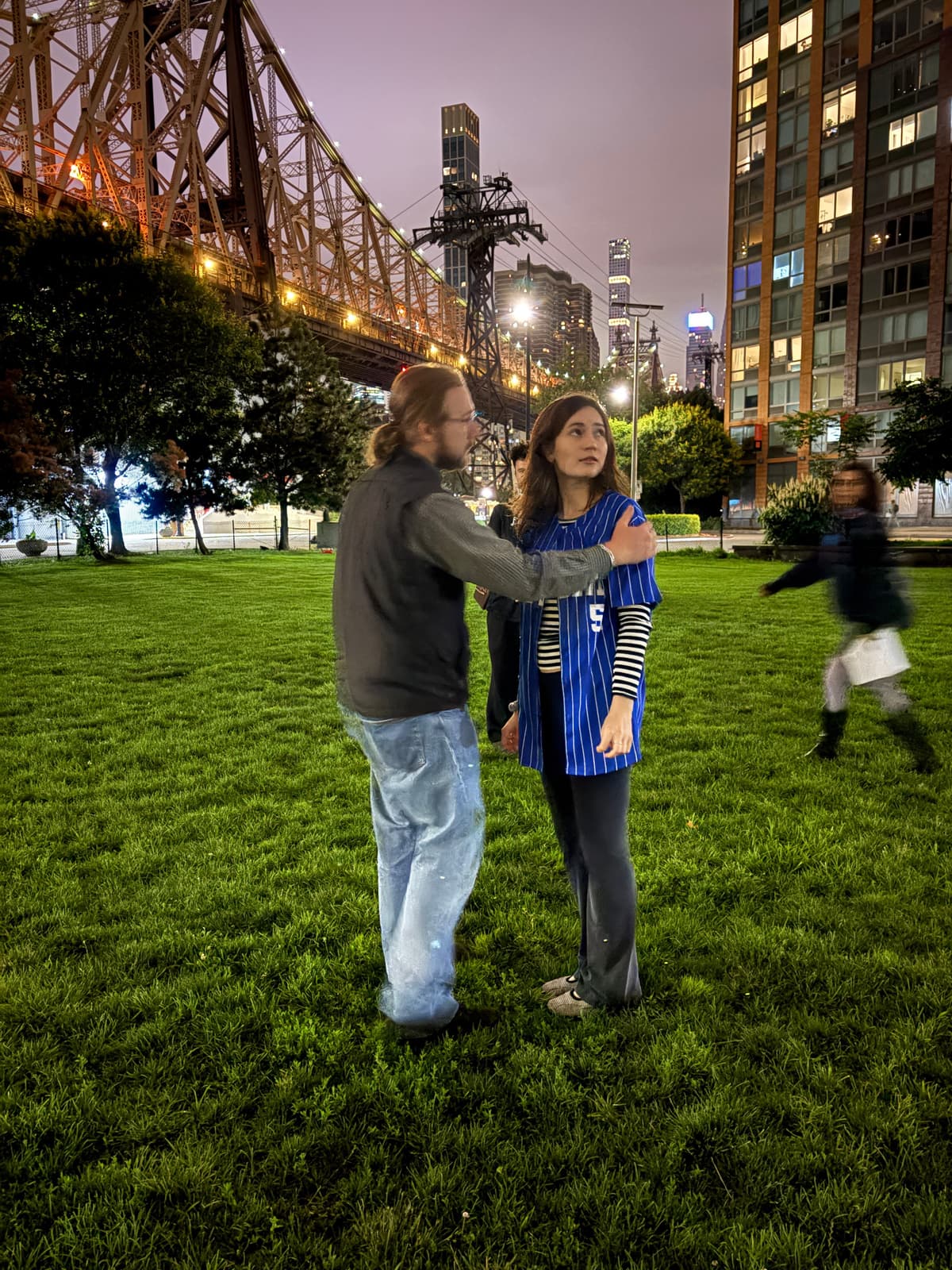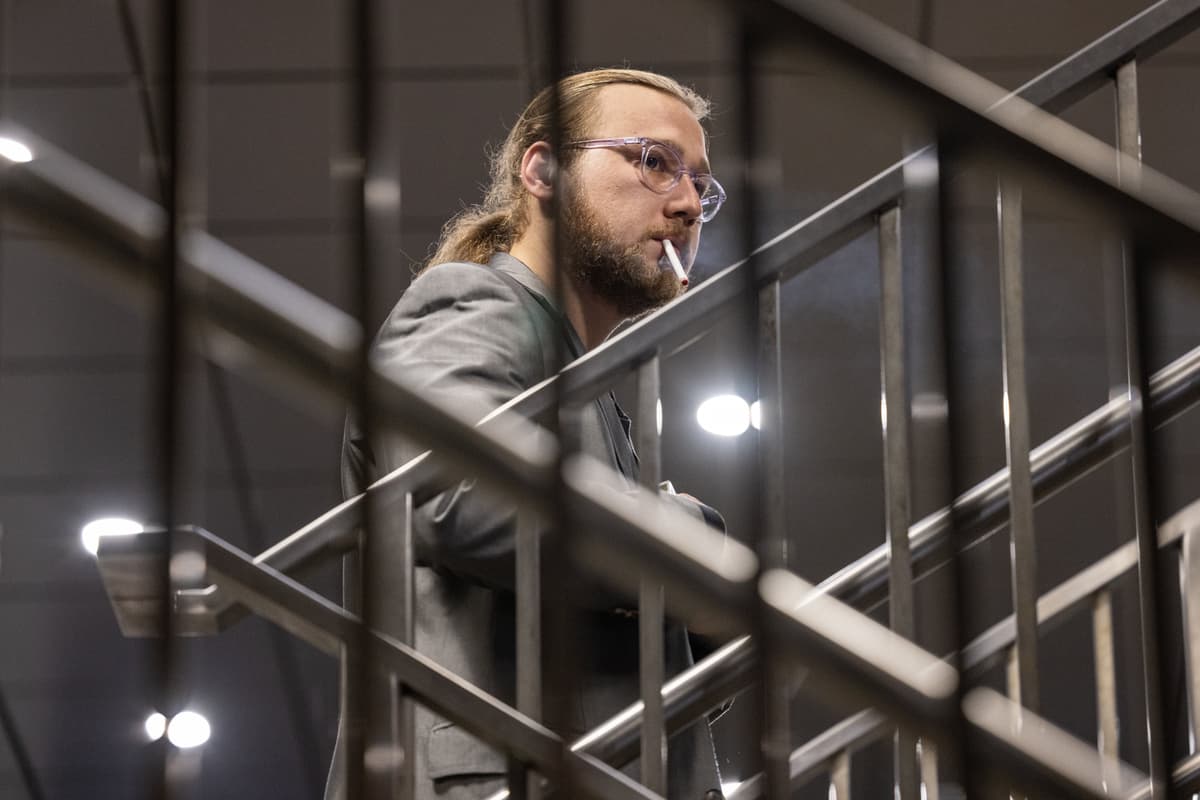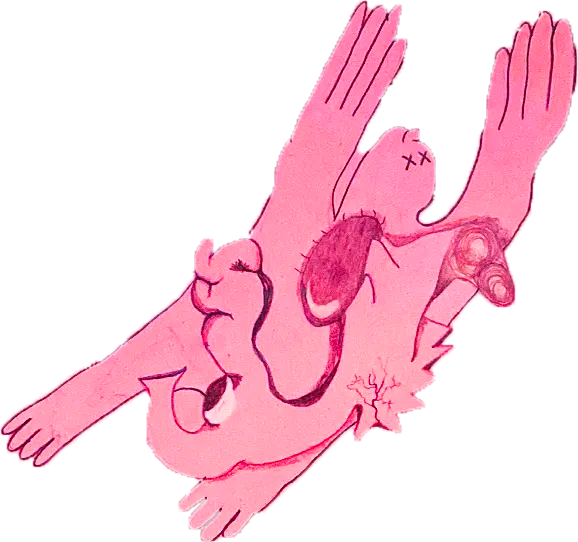SKYSCRAPER
Georgica Pettus

TESS POLLOK: You’re a video artist and playwright and your new show, Skyscraper, is a site-specific work that actually takes place on the Roosevelt Island Tram. What is it about?
GEORGICA PETTUS: The main character, Jordan (Zachary Zamsky), is a land use lawyer and he’s just gotten approval to put a skyscraper on Roosevelt Island. The plot revolves around him bringing his girlfriend, Eliza (me), to the island to propose to her. They run into Claire (Sharleen Chidiac), a coworker of his, and things begin to unravel.
POLLOK: What do you see the play as being about, other than the specific plot points?
PETTUS: Disconnection. Specifically the disconnect between what we think and what we say. It’s three people simultaneously presenting three different sides of a story, and forcing the audience to parse what’s actually going on.
POLLOK: What made you think to use land development as a device?
PETTUS: I think just the sort of split nature of the Island. There’s the Roosevelt Island lifers and then the newcomers, mostly connected to the Cornell campus. You can see it in the architecture too, there are these beautiful decrepit buildings like 20 feet from brand new high rises. The old ones are preserved but mostly out of use. Time on the island feels kind of frozen. My friend Jack Radley (he and Constanza Valenzuela are the producers) suggested I write a play to take place on the Roosevelt Island Tram, that’s how this whole thing started. At first I envisioned it as a micro-play, only about four minutes long, since that’s how long the ride is. Four minutes became forty-five and now the play takes place both on and off the tram.
POLLOK: How do you see the different characters with respect to disconnection and power as their motivators?
PETTUS: None of them really want power they just want love, is that kind of corny? They’re all doing something that they think is going to get them the person they want. Jordan thinks a skyscraper is going to be the thing that guarantees his girlfriend’s love, when in reality she just desperately (and pathologically) wants attention. Jordan, Claire, and Eliza all want to be adored. They do strange things to try and accomplish that goal.

Scene from Skyscraper by Georgica Pettus. Courtesy the artist
POLLOK: Who inspires you when playwriting or just when thinking about art in general?
PETTUS: Right now, George Saunders is my everything. I read two of his short story books in a row when I was writing this play and the next. I’ve been reading a lot of his interviews recently too. He talks about writing weird bad stories in grad school because you’re just working in a bubble and trying to be smart. I totally relate to that. But when he got out of grad school, and didn’t have money and was working like a normal person, his art improved dramatically. Having absurd experiences in very normal real life situations is basically all I write about.
POLLOK: I love George Saunders! “Home” is my favorite short story of all time. Have you read Lincoln in the Bardo?
PETTUS: Not yet, just his short stories.
POLLOK: That’s his best stuff, in my opinion. Which is your favorite? And who are some of your other favorite authors and playwrights?
PETTUS: “The Semplica Girl Diaries” is definitely my favorite of his. My big two, other than George Saunders, are Suzan-Lori Parks and Samuel Beckett. When I read anything written by either of them, I want to write something.

Scene from Skyscraper by Georgica Pettus. Courtesy the artist
POLLOK: Is there anything that inspires you outside the world of writing?
PETTUS: Big time. Dance, for sure. Just seeing any dance performance. Video art was my first love and it still informs everything I do. Matthew Barney, Andrea Fraser, Hito Steyerl, Paul Pfeiffer, Ronnie Bass, ugh. Mike Leigh. He wrote a lot of plays but is better known for his films. I’m inspired by his method a lot. He writes very, very little dialogue and then he works with his actors individually to build out their characters. I think that’s amazing, that he writes the scenes with the actors. I haven’t worked this way yet but I plan to.
POLLOK: I admire that era of filmmaking a lot. Something that I feel has been lost in contemporary cinema is that attention to detail and a love of improvisation. It’s always a much richer performance when the person is actually there. How do you feel about contemporary plays? Which ones do you like?
PETTUS: When you say contemporary I think about right right now. And right right now people are doing some very inventive things with plays. Theater is having a renaissance, the old guard is kind of dissolving. Calla Henkel and Max Pitegoff are paving the way with New Theater Hollywood. Pageant in New York presents a lot of great experimental work. My friend Lili Dekker made a play recently that began and ended with 10-minute scenes of total silence. It was beautiful.
POLLOK: What’s your favorite play of all time?
PETTUS: [Laughs] Okay, I need to think about that for one second… I’m going to name two: Imperceptible Mutabilities in the Third Kingdom by Suzan-Lori Parks and The Duck Variations by David Mamet. So different. I think both of them just left me with this feeling of like, “this is a play???” And I love that feeling. I love the parameters in my head being totally expanded. Also both of them made me laugh really hard.
POLLOK: Why do you write plays?
PETTUS: I write plays because I’m pro-entertainment. I want to entertain people.
GEORGICA PETTUS is a New York City-based playwright and artist.
TESS POLLOK is a writer, critic, and the editor of Animal Blood.
← back to features
